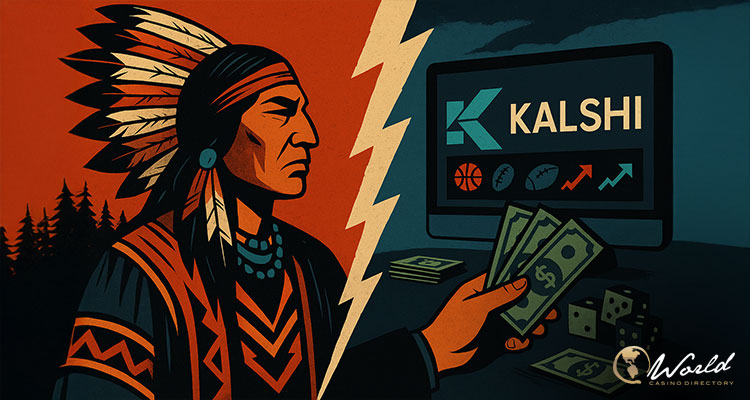On Wednesday, August 20, the Ho‑Chunk Nation initiated legal proceedings in the U.S. District Court for the Western District of Wisconsin, claiming that Kalshi Inc. and Robinhood Markets are facilitating illicit sports gambling on tribal lands. The complaint describes Kalshi’s platform as a vehicle where users can “trade on the outcome of real‑world events,” offering “yes” or “no” selections on everything from sports matchups to political forecasts.
Under the Indian Gaming Regulatory Act (IGRA), tribal jurisdictions regulate gaming on tribal territories, and any form of gaming not authorized under federally negotiated tribal-state compacts is deemed illegal. The Ho‑Chunk filing argues that Kalshi’s services are bypassing those agreed-upon frameworks by enabling unauthorized activity both on and off tribal lands.
Allegations of Sovereign Rights Interference and Gambling Misrepresentation
Kalshi promotes its model as a prediction market regulated by the Commodity Exchange Act (CEA), where users engage in contracts based on event outcomes. However, the Nation contends these so-called “event contracts” are, in essence, unregulated wagers cloaked as futures products. The complaint states, “While masquerading as novel commodities and futures products, these event contracts are, substantively, nothing more than illegal, unregulated wagers on the outcomes of sporting events”.
According to Courthouse News Service, the lawsuit alleges that by permitting these contracts to be readily accessible—even on tribal lands—Kalshi infringes upon the Nation’s sovereign authority, disturbing its exclusive right to manage and benefit from gaming operations under the IGRA and its tribal compact with Wisconsin. It further claims that the availability of these contracts “draws business away from the Nation’s casinos,” impacting revenue crucial for governmental services and tribal development.
Moreover, the Nation accuses Kalshi of deploying false advertising, citing marketing that positions itself as “The First Nationwide Legal Sports Betting Platform” with availability “in all 50 States,” which the tribal complaint (pdf) deems misleading.
Added Legal Claims: RICO and Regulatory Timing Advantage
Beyond violations of gaming law, the Nation includes claims under the Racketeer Influenced and Corrupt Organizations (RICO) Act, alleging coordinated activity between Kalshi and Robinhood aimed at circumventing tribal authority.
The complaint also highlights how Kalshi’s actions were timed to exploit leadership gaps within the Commodity Futures Trading Commission (CFTC), particularly noting Kalshi board member Brian Quintenz was involved in regulatory nomination processes—a timing they argue enabled regulatory evasion.
This lawsuit builds on earlier litigation filed by three California tribes, which similarly challenged Kalshi and Robinhood for offering sports contracts that infringe on tribal gaming rights. The momentum from those cases appears to have prompted the Ho‑Chunk Nation to press its legal challenge, reinforcing tribal assertion of exclusive control over class III gaming.



